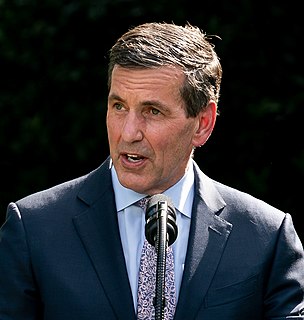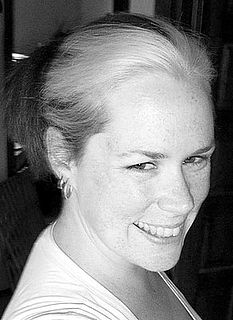A Quote by Bill Gates
Well depending on the government, you either work through the government, which is ideal, because then you're strengthening their capabilities, or you work through the non-governmental organizations. It's never easy, and you know, it's just about the very basics of health. This is not hospitals. This is just primary health care [in Africa], the most simple things, and even so, getting the supplies out, getting the trained workers there.
Related Quotes
In business, you don't necessarily need heart, whereas here, in government, almost everything affects people. So if you're talking about health care - you have health care in business but you're trying to just negotiate a good price on health care, et cetera, et cetera. You're providing health. Here, everything, pretty much everything you do in government, involves heart, whereas in business, most things don't involve heart. In fact, in business you're actually better off without it.
Most of the people who make decisions about global health are in the U.S. and Western Europe. There, the mental health care system is dominated by highly trained, expensive professionals in big hospitals, who often see patients over long periods of time. This simply can't be done in rural Africa or India. Who the hell can afford that kind of care?
There are several hundred people who stayed in the Ebola-affected countries and continued to do the work, put themselves at great risk because medical workers are the most likely to be infected because they're helping out when the person's health is deteriorating, including quite a bit of bleeding as they're getting very, very sick.
The government is supposed to conform to our will. By taking the most important thing you have, your health and your health care, and turning that over to the government, you fundamentally shift the power, a huge chunk of it, from the people to the government. This is not the direction that we want the government to go in this nation.
Can I say one other thing that`s very important? I`m indebted to Donald Trump for a long time, we`ve had this problem that people disliked government. And the health care bill has shown reminded people and Donald Trump has shown people there is something a lot worse than government. It`s not government. That as bad as they might have thought the government was on health care, it`s now created people that the absence of government healthcare is even worse.
I think the Scandinavian health systems are better when it comes to preventative care than the German system, because in the Scandinavian systems, the government is really more active in defining treatment, goals and defining health priorities. The German system is a competitive system with little government intervention. The price for this is that the government cannot set a health agenda. And the Scandinavian systems have little competition, so you often do have waiting lists. But on the other hand, you then have the government which can push for prevention.
In 1979, just after I became governor, I asked Hillary to chair a rural health committee to help expand health care to isolated farm and mountain areas. They recommended to do that partly by deploying trained nurse practitioners in places with no doctors to provide primary care they were trained to provide.
I suppose I knew on an intellectual level that graves weren't especially made for getting out of. I mean, you start with a hermetically sealed casket and then you dump six feet of dirt on top of it. Over time the earth gets compacted, which can't make it easy to dig through. So even if you're a very angry and determined zombie, you've kind of got your work cut out for you just escaping from the grave.


































